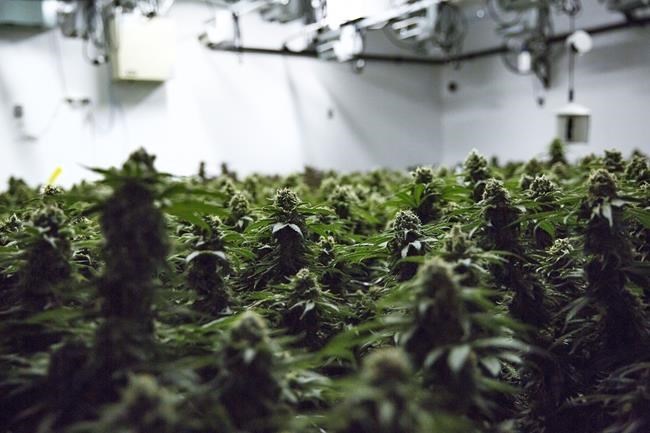TORONTO — The Alcohol and Gaming Commission of Ontario says cannabis retailers in the province can offer delivery and curbside pickup services on a permanent basis.
The move is meant to make the two sales avenues pot stores were first permitted to explore on a temporary basis during the COVID-19 pandemic permanent, starting March 15.
It will also offer buyers more choice, convenience and access to the legal cannabis market.
Bubba Nicholson, the vice-president of business development and ethos at Thrive Cannabis in Simcoe, Ont., applauded the move because permanent delivery and curbside could help pot stores, which saw lower traffic during the COVID-19 pandemic and found it harder to draw in new customers, rebound.
"We need to empower the retailers to be able to try and get customers in their door either virtual or bricks and mortar as best they can," he said.
However, the move has some limitations, including regulations preventing cannabis retailers from operating entirely or predominantly as delivery businesses.
This means cannabis retailers will not be able to adopt the same model being used by some quick-service restaurants and other retailers, which have set up numerous "ghost kitchens" or fulfilment facilities that don't serve walk-in customers but act as pickup spots for couriers.
However, preventing delivery-only businesses will mean large companies won't dwarf others, pointed out Omar Khan, senior vice-president of corporate and public affairs at High Tide Inc., which has about 113 pot stores in Ontario, Alberta, Manitoba and Saskatchewan.
"We...support the Ontario regulations because they limit the ability of any one operator from dominating the cannabis e-commerce market," he wrote in an email.
"This will drive competition and help ensure greater choice for consumers.”
The commission also said delivery orders must be placed with a specific store location and orders have to originate and be fulfilled by that same store with products that are on-premises.
The commission will only allow deliveries to be made by people with a retail store authorization or their staff and will not allow deliveries from third parties.
Robyn Rabinovitch, Thrive's vice-president of sales and marketing, said setting up your own delivery service is not a quick or cheap endeavour, especially for mom-and-pop cannabis stores.
Some cannabis stores in downtown Toronto she ordered from during the pandemic were able to drop off products in 20 minutes or less.
"It'll be interesting to see how viable those business streams are for the future with everyone running so tightly month to month and the larger cost being imposed on those that try and stand out through delivery services," she said.
Many Ontario pot retailers use their own software to facilitate deliveries and pickup.
Some like Canopy Growth Corp.'s Tokyo Smoke started allowing people to place orders in the UberEats app in November. Those orders are processed by the pot store's staff and picked up by customers at the shop.
Mark Hillard, Tokyo Smoke's vice-president of operations, was "thrilled" with the new regulations, which he said allows "guests to choose which option best fits their needs."
In an emailed statement, he said, "We remain committed to working collaboratively with provincial regulatory bodies to enhance convenience and accessibility to legal, recreational cannabis, and see the move to permanent curbside pickup and delivery as a step in the right direction.”
This report by The Canadian Press was first published March 9, 2022.
Tara Deschamps, The Canadian Press
Note to readers: This is a corrected story. A previous version misstated Mark Hillard's first name.

